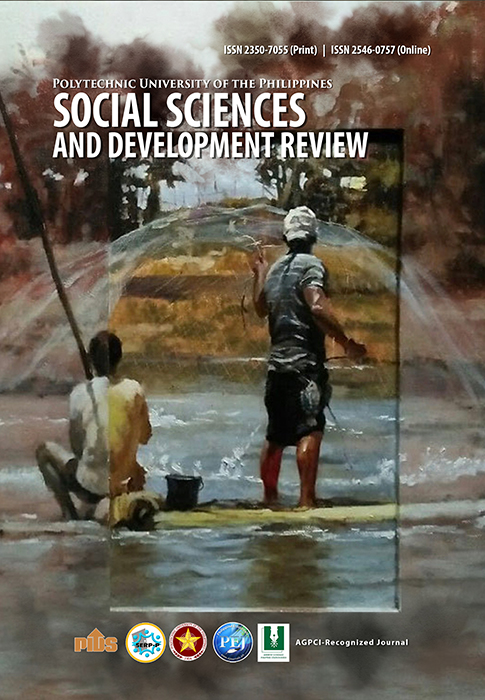Across Borders: Understanding Transnational Fathering of Overseas Filipino Worker (OFW) Fathers
DOI:
https://doi.org/10.70922/xegmp867Keywords:
OFW fathers, Transnational fathering, Fatherhood, Migration, Sociology of FamilyAbstract
This research sought to understand the lived experiences of OFW fathers in transnational fathering and explore their motivations and the decision making process that resulted in their intention and willingness to work abroad despite having to leave their children behind. This study also aimed to describe their ideal construct of a father and how they negotiate this construct with their actual experiences as an OFW father. Nine (9) OFW fathers were interviewed regarding their experiences as OFWs who practice fathering from a distance. In agreement with the premises of Lee’s theory of migration, the OFW father’s decision to work overseas despite leaving their children behind was revealed to have been influenced by the disadvantageous conditions in the Philippines and personal factors as well. The study found that OFW fathers’ construction of fatherhood is a mixture of role expectations derived from both traditional and “new” fatherhood discourses. Some of the role expectations in this construction of an ideal father, however, prove to be unattainable because of the transnational nature of their parental engagement. As a result, to maintain and reconfirm their identity, they tend to restructure their practices, further internalizing a more contemporary version of a father. Finally, the study illustrates some facets of the labor migration experience among OFW fathers and its implications for their families.
Downloads
Downloads
Published
Issue
Section
License
Copyright (c) 2024 Kristine L. Andaya, Marilag M. Baricaua , Charlote I. Marquez (Author)

This work is licensed under a Creative Commons Attribution-NonCommercial 4.0 International License.
Articles published in the SOCIAL SCIENCES AND DEVELOPMENT REVIEW will be Open-Access articles distributed under the terms and conditions of the Creative Commons Attribution-Noncommercial 4.0 International (CC BY-NC 4.0). This allows for immediate free access to the work and permits any user to read, download, copy, distribute, print, search, or link to the full texts of articles, crawl them for indexing, pass them as data to software, or use them for any other lawful purpose.


